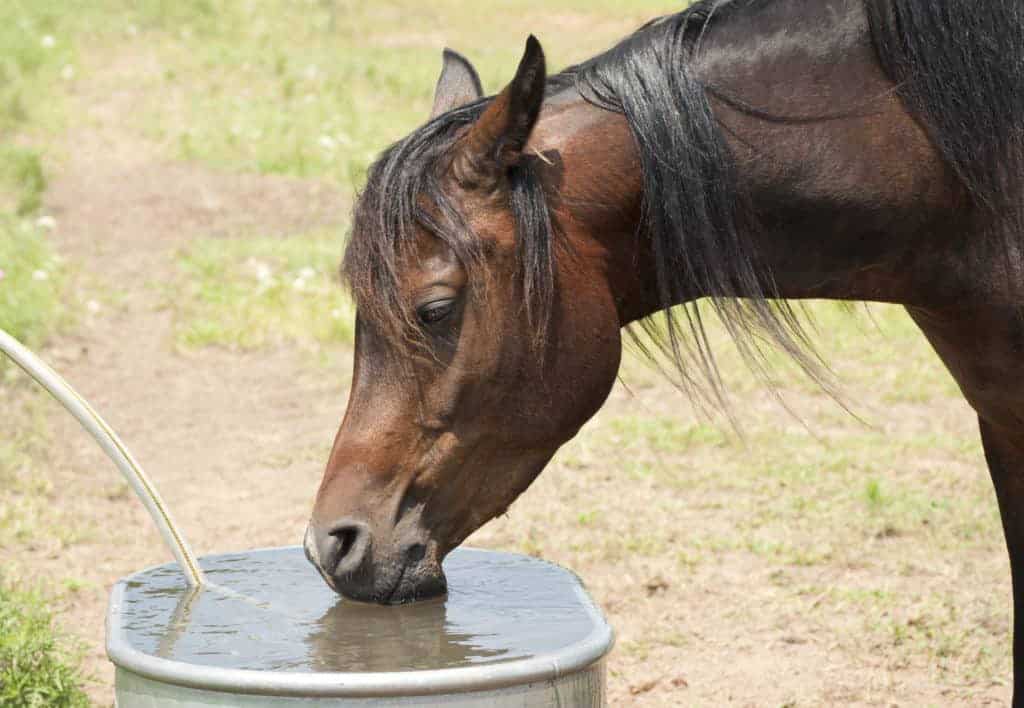
Water: The Most Important Nutrient for Horses
As winter approaches, remember that horses require access to clean water at an appropriate temperature.

As winter approaches, remember that horses require access to clean water at an appropriate temperature.

How can I encourage my horse to drink?

Veterinarians are aiming to identify endurance horses in danger of metabolic failure during competition.

It’s hot out there! Learn how to keep your horse cool and comfortable during exercise and rest on even the most scorching days.

Of the 692 voters, 317 (46%) indicated the main cooling method they employ is providing ample shade.

A research team concluded that providing food without water can increase dehydration in horses.

Special attention to a horse’s management and health program is a necessity during show season.

Here are 10 tips–from keeping horses hydrated to limiting exercise–on preventing heat-related problems.

Learn how to quench your horse’s thirst to avoid potentially dangerous scenarios, such as severe dehydration.

Researchers believe different sweating patterns can help estimate how much sweat horses lose during exercise.

Kent Allen, DVM, head treating vet at the Rolex Kentucky Three-Day Event, describes addressing dehydration in event horses and preventing it in your own.

Your horse’s fecal production and appearance can be an indicator of good or poor health.

With proper management, most horses recover well from dehydration and exhaustion.
Is it a good idea to add a little salt to your horses’ diet in the winter to get them to drink more water?

Paying attention to equine management can go a long way to decrease colic incidence.
Having a supply of water in your trailer is useful for hot trail rides, all-day horse shows or camping trips.Photo by Alayne Blickle This project
Stay on top of the most recent Horse Health news with
"*" indicates required fields